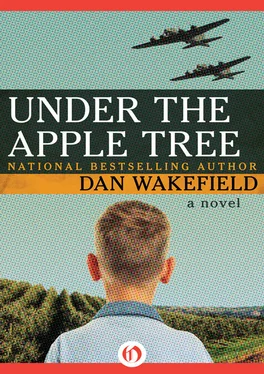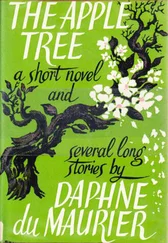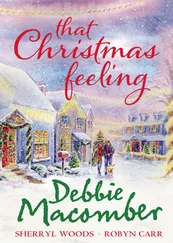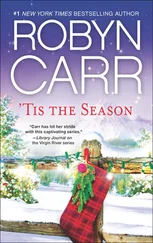He walked her back to the corner of her block and then turned and ran home and shut himself in his room.
The day after school was out the Allies invaded the beaches of Normandy, France, and Tutlow came over with some homemade explosives to celebrate D-Day. The aspiring little scientist was blinking eagerly behind his thick glasses, anxious to blast off his improvised arsenal, but Artie just shook his head.
“No, thanks,” he said.
“What’s wrong? You still in a funk ’cause your big hero brother got two-timed?”
“Oh, go blow it out your ear,” Artie said, and walked in the house.
He snitched a Pabst Blue Ribbon from the icebox and drank it alone in his room, listening to the senseless clangor of church bells and firecrackers. The beer still tasted awful to him, like soapsuds, but he liked that it made him belch. Belching seemed lowdown and grown-up, which was how he felt instead of like a kid who got a kick out of setting off homemade explosives. He even liked knowing the beer was bad for him.
Even though Roy was back in the States, it seemed he was actually farther away now than when he was halfway around the world. He wrote back a postcard after he got to Parris Island, saying he was settled there and everything was fine. Now that he didn’t have a girl to write home to, the family knew they wouldn’t be hearing much from him, but Mom tried to look on the bright side. She said they’d be seeing more of him now; he’d probably get to come home for Christmas, and maybe even Thanksgiving. After all, he was only in South Carolina, not the South Pacific. Artie didn’t say anything, but he knew in his gut that Roy wouldn’t come back home till the War was over.
Artie got a postcard from Shirley, too. It showed a picture of the Soldiers and Sailors Monument in the center of Indianapolis. She said she was working hard and loved it. The card was signed “Rosie the Riveter,” and didn’t have any return address.
Artie felt like that was all he had left of his two favorite people.
Postcards.
Artie sure was relieved when America dropped the Atom Bomb on Japan.
The most important thing it meant was that Our Boys wouldn’t have to die invading the stronghold of the evil yellow Empire. Before the Bomb was dropped, the papers were saying it would cost about 175,000 American lives to capture the “Home Islands” of the Japs, where every last fanatical man, woman, and child would fight to the death and fall on their swords. But even the crazed Warlords knew there was no use battling the A-Bomb, so it saved the lives of those hundreds of thousands of American boys who’d have been killed in the invasion.
It also meant Roy would finally come home. Like Artie suspected, he hadn’t come back to Birney for the holidays, even though he could have taken a train from South Carolina. Instead he sent presents to the family, U.S.M.C. souvenirs of Parris Island, and a card that said he was going to spend Christmas with a real Southern Belle on her family’s gigantic plantation. But now that the War would be over he wouldn’t have any more excuses to stay away. He’d have to come home, and Artie and the folks could help him adjust and begin his new life in the Post-War world.
Artie hoped Shirley would come home too, and maybe she and Roy would patch things up and live happily ever after, but he knew that was probably a pipe dream. For all he knew, Shirley had married some old guy she met at the airplane factory, or a serviceman at the U.S.O., or maybe some race car driver from the Indianapolis 500. At least with the War over anyway, she wouldn’t have to keep working at the factory; that was just something women did in Wartime, and after the national emergency was through they were supposed to get back to being regular women again. Maybe Shirley would go off to college and become a terrific schoolteacher beloved by generations of students.
In the secret, most selfish part of his mind, Artie was glad the A-Bomb had ended the War because he was sick and tired of it. He knew he’d “remember Pearl Harbor” the rest of his life, but it seemed now part of his childhood, along with the patriotic songs and the drives for Bonds and scrap, the rationing stamps and Gold Stars hung in the windows of homes where boys would not return. All that seemed like a dream already, and Artie was ready for the real things of life, like high school and girls.
Everything had started happening real fast in the spring, like the whole world was getting ready to clean up the mess it was in and be ready for the opening of high school in the fall. In just a couple of weeks around the time of Artie’s fourteenth birthday, F.D.R. died, the Germans surrendered, and, as if swept along by the tides of change, Artie decided to work at his Dad’s filling station all summer instead of going back to Camp Cho-Ko-Mo-Ko. It seemed a more grown-up thing to do, and that was what Artie was in the mood for, now that his voice had cracked and turned from alto to low tenor, and his height had shot up to five-six-and-three-eighths according to the orange crayon marks on the door of his room. To add to these thrilling changes, he had also grown manly hairs under his armpits, around his privates, along his legs, and even a few on his chest. He liked to walk around the house with his shirt off, flexing his push-up-strengthened biceps and singing the great new popular song:
Gimme land lotsa land under starry skies above—
Don’t fence me in …
The song really said how people felt now. They were tired of the years of rules and regulations, of counting rationing points and pennies, of staying home to save gas and eating oleo to save butter. They wanted to break the shackles of caution and duty (“I can’t stand hobbles and I don’t like fences”) and roam out free across the rich, big land that was theirs by the grace of God and the rightness of destiny. They had fought for their freedom and wanted to enjoy it.
Besides those things, the song had another, more personal meaning for Artie. It seemed to say how he felt about finally growing up, the feeling of newfound freedom that he just was beginning to experience, like a cowboy let loose on the open range and knowing it all lay before him, the life ahead that seemed as glorious and spacious as the land itself; and now, just getting the first clear glimpse of it, knowing the excitement of it, he wanted more, he wanted it all.
Artie loved working on cars in the greasy hot garage of the filling station, sweating and wearing only his dirty old dungarees and clodhoppers but Dad made him put on a T-shirt to wait on customers out front at the pumps. Even then he rolled up the short sleeves of the T-shirt clear to his shoulders so his biceps showed, and he, kept tugging up the front of it to scratch at his stomach and admire the manly new hairs curling out around his belly button.
When the feisty, tough little President Harry Truman dropped a second A-Bomb on one of the Imperial Japanese strongholds the Nips at last gave up and America proclaimed “Victory Over Japan” which was celebrated as a great new national holiday, “V-J” Day. Dad closed down the filling station and Artie rushed home and took a shower, anxious to keep his date for this historic occasion with Caroline Spingarn.
She owed him one.
Back in the spring when Germany surrendered and America declared “Victory in Europe” Fishy Mitchelman had rushed onto Main Street and tried to kiss some lady who was carrying a bag of groceries to her car. When she screamed and dropped the groceries, Fishy just threw back his head and shouted “V-E fo’ me!” and started to chase two girls across the street who shrieked and ran for cover in the Odd Fellows Building when they saw him coming. When Artie saw Fishy go berserk like that he figured maybe he’d taken some kind of musical dope and was on a rampage of sex and terror, so he took him into Damon’s to try to calm him down with a rainbow Coke.
Читать дальше












